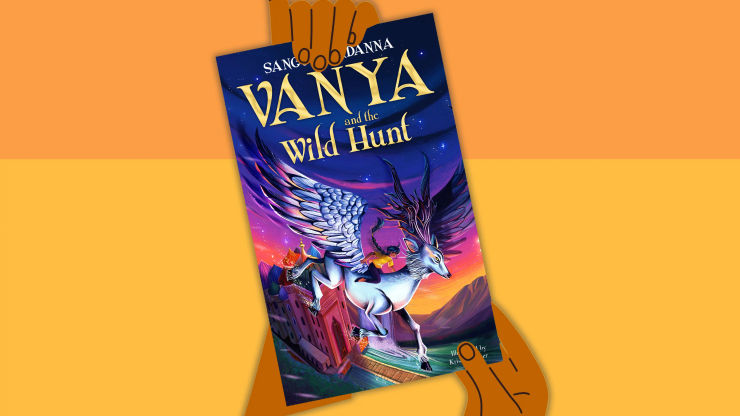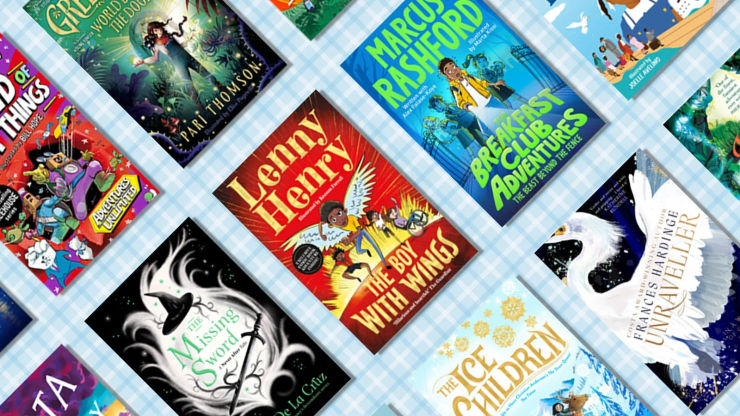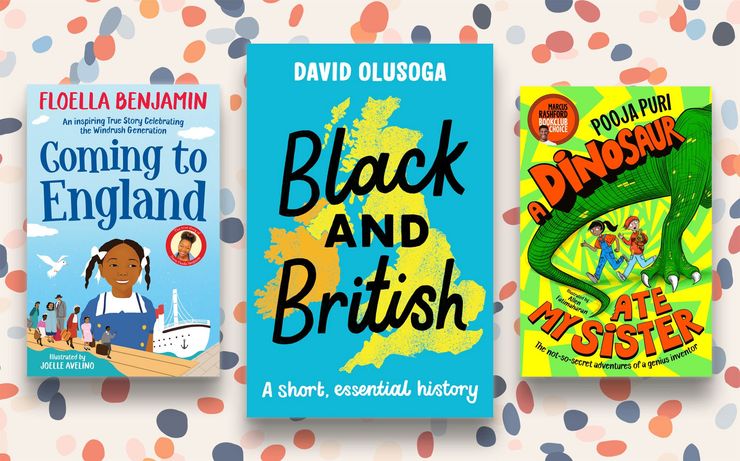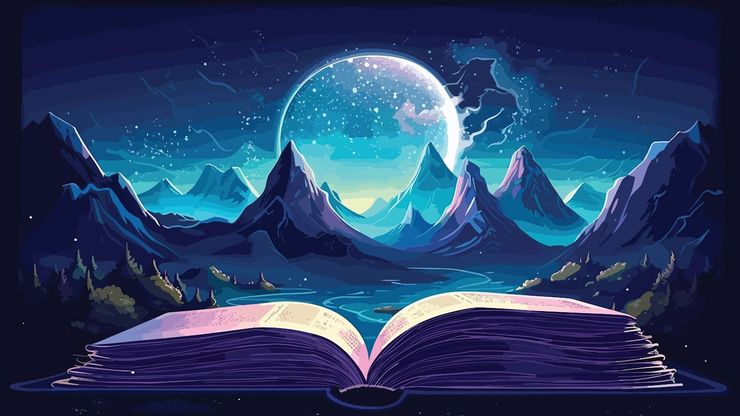Why I love. . . Vanya and the Wild Hunt
'She has reached back into my childhood in Kolkata to tell me that stories about girls like me matter too': Srionti from Macmillan Children's Books recommends Sangu Mandanna's fantasy novel for children aged nine and up.

Srionti from our children's books team recommends Waterstones Children's Book of the Month, Vanya and the Wild Hunt, a fantasy novel from Sangu Mandanna, now out in paperback.
At the book-hungry age of eleven, I remember being certain that it was not possible for a young Indian girl to be the protagonist of a fantasy novel. It wasn’t just unlikely, no – it wasn’t allowed. You had to have a peaches and cream complexion, red hair, and eyes of a colour more interesting than my dark brown. You had to live somewhere like New York.
Reading Vanya and the Wild Hunt was an emotional timeslip even before it was a rollicking middle grade fantasy read; the author Sangu Mandanna reached back into my childhood in Kolkata to tell me that stories about girls like me mattered too – ‘daydreamy’, brown-skinned, and without the correct word in reach at all times.
‘Reading Vanya and the Wild Hunt was an emotional timeslip even before it was a rollicking middle grade fantasy read; the author Sangu Mandanna reached back into my childhood in Kolkata to tell me that stories about girls like me mattered too – ‘daydreamy’, brown-skinned, and without the correct word in reach at all times.’
Eleven-year-old Vanya’s parents run a quiet bookshop in Norwich, where she struggles to fit in. When a nightmarish monster called the Gildencroft Bogey attacks their home, the secrets Vanya’s parents have been keeping unravel and she tumbles into a world of enchantments. Vanya is an archling, and has inherited the ability to speak to books and see monsters. She must now decide whether she will join a long line of hunters and archivists at the Arcane Archive of Auramere, all fighting to protect the world from the wicked Old Ones. The Great Trouble of the world is that Old Ones are unkillable – they can be slain into dormancy, but always return.
Auramere is a haven protecting folk from the Old Ones, a trove of arcane knowledge, and a school for young archwitches and archivists in training – archlings like Vanya. The charm of Mandanna’s fresh approach to a fantasy school lies partly in the matter-of-fact worldbuilding. Here we are in a sleepy Norwich middle school (albeit with encyclopedias of flowers whispering to us), and here is the Bogeyman in the flesh, a many-mouthed creature ‘older than the world’. Here we step through a floating door to the blossom-carpeted Nilgiri Mountains, and here is the Rune of Transmission, which allows us to use the internet there.
‘I cannot help but love a lead who is equal parts sass and loyalty, who acts just as often on well-meaning disobedience as awestruck wonder.’
As with beloved contemporary fantasies by Jonathan Stroud and Naomi Novik, Mandanna decentres the magical world from England or the USA with her own-voice perspective of a British-Indian family. She quietly integrates not just folkloric beings, but also surnames, accents, honorifics, and versions of myths from around the world, creating a rich canvas where nearly any story can be true. The reader is also reintroduced to unicorns (peanut-loving Shetland ponies with a stubby magical horn) and Baba Yaga (hunter or hunted?)
Vanya herself is the antithesis of the standard young Chosen One; her weapon is her curiosity, and it’s her agency that drives the action of the novel forward. This reader was equally thrilled to accompany her in knife-fights with monsters, on midnight library excursions, and (I feel so seen) in her wise focus on trying every magical cake in the local bakery. I cannot help but love a lead who is equal parts sass and loyalty, who acts just as often on well-meaning disobedience as awestruck wonder.
‘This is an irresistibly crafted heroine in a world where the author’s inclusive MO has thrown open the door to every magical possibility.’
All this without being a paragon: Vanya is quick to grab a weapon or sketch a rune to defend what matters to her, but this decisiveness in fights with primordial creatures is tempered by the very real crisis of confidence that comes with approaching adolescence. Her ADHD is thoughtfully detailed, most often expanded on by Vanya herself. Rather than absent or deceased parents creating a point of conflict, Vanya’s friction with them arises from having Auramere – among other secrets – kept from her, and her own stubborn desire to fix things, to prove herself, to fit in better.
When you’re somewhere as fantastical and dangerous as Auramere, unthinkable choices are made often. Read Vanya and the Wild Hunt for an irresistibly crafted heroine in a world where the author’s inclusive MO has thrown open the door to every magical possibility.
Vanya and the Wild Hunt
by Sangu Mandanna
Eleven-year-old Vanya Vallen can talk to books. But more importantly, the books talk back. When her family is attacked by a monster she believed only existed in legends, Vanya discovers that her parents have been keeping secrets, and that monsters do exist. Soon, she is whisked off to the enchanted school of Auramere, where she joins the ranks of archwitches and archivists. Auramere is full of magic. . . and monsters. And the Wild Hunt is on the prowl. It’s up to Vanya to unmask its leader and stop them from destroying the only place she’s ever truly belonged.








